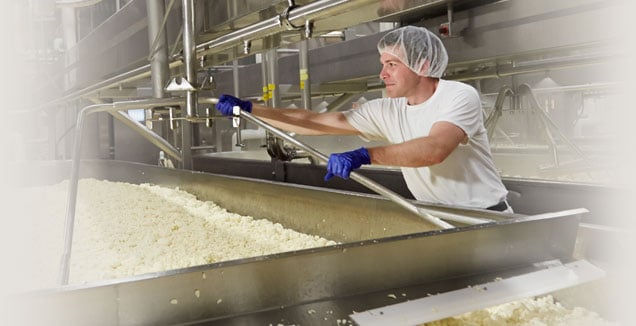Cheese Store Melbourne: Your Best Destination for All Things Cheese
Cheese Store Melbourne: Your Best Destination for All Things Cheese
Blog Article
An Extensive Check Out Cheese Manufacturing: Ingredients, Techniques, and the Future of Craftsmen Cheeses
The complex process of cheese manufacturing is a fascinating convergence of art and scientific research, where top notch milk, rennet, and specific microbial societies serve as fundamental elements. As the market significantly focuses on sustainability and openness, the future of artisan cheeses guarantees to reflect both heritage and progression.
Key Ingredients in Cheese Production
A range of essential components play a crucial role in cheese production, each adding to the end product's taste, texture, and character. The main component in cheese is milk, which can originate from numerous sources, including cows, goats, and lamb - cheese makers melbourne. The type of milk made use of dramatically affects celebrity's taste and consistency; as an example, cow's milk typically generates creamier cheeses, while goat's milk frequently creates tasty ranges
An additional critical active ingredient is rennet, an enzyme made use of to curdle the milk, dividing it right into curds and whey. The resource of rennet can be animal, vegetable, or microbial, each imparting distinctive features to celebrity. Societies, including particular stress of bacteria, are also integral to the cheese-making procedure. They ferment lactose right into lactic acid, helping in flavor development and texture.
Salt not only enhances the taste however also acts as a chemical, preventing the growth of unwanted microorganisms. Furthermore, various flavor representatives, such as herbs, spices, and even smoked timber, can be included in create unique artisanal cheeses. Together, these active ingredients create the foundation of cheese production, establishing the phase for diverse and rich cheese varieties.
Conventional Cheese-Making Techniques
Using conventional cheese-making methods, artisans worldwide maintain classic techniques that have actually been given with generations. These methods usually stress using top notch, locally sourced milk, which is main to the distinct tastes and appearances of artisanal cheeses. The procedure commonly starts with the mindful heating of milk, adhered to by the enhancement of cultures and rennet to help with coagulation.
When the curds create, they are cut, enabling whey to drain, a critical action that influences moisture content and structure. The curds are after that delicately mixed and prepared to achieve the desired firmness. Afterward, they are drained and pressed into mold and mildews. Salting is an important element of this procedure, boosting taste while additionally acting as a preservative.
Aging, or affinage, is another crucial element, throughout which cheeses develop their characteristic fragrances and tastes. Artisans might employ specific maturing atmospheres, utilizing humidity and temperature controls to refine celebrity's profile. The commitment to these traditional approaches not just sustains neighborhood economies but likewise adds to the rich variety of cheese selections discovered internationally, commemorating cultural heritage and artisanal craftsmanship.
Modern Developments in Cheese Production
Exactly how have technological advancements transformed cheese production in recent years? The combination of modern technology has actually changed both the effectiveness and quality of cheese manufacturing.
Additionally, improvements in microbiology have allowed cheesemakers to pick particular microbial cultures and enzymes, enhancing taste accounts and improving service life. Using sensing unit innovation for keeping track of fermentation problems has actually also become common, enabling real-time adjustments to preserve ideal atmospheres for cheese aging.

These advancements not just improve the quality and sustainability of cheese manufacturing however also encourage artisan manufacturers to keep conventional flavors while welcoming modern-day performance. As innovation continues to advance, the future of cheese production looks encouraging, blending practice imp source with innovation.
The Role of Terroir in Cheese
In the realm of cheese manufacturing, terroir plays a pivotal duty in defining the distinctive qualities of numerous cheeses. Terroir, a French term typically connected with white wine, encompasses the ecological factors that affect farming products, consisting of soil structure, environment, and local vegetation and fauna. In cheese-making, the special attributes of the region where the milk is sourced can convey specific flavors and appearances to the final product.
As an example, the grazing conditions of dairy products animals significantly affect the milk's make-up, affected by the kinds of yards and herbs offered in a specific locale. This varies not only in between nations but likewise in between areas within the very same country. Furthermore, the microbial areas existing in the environment add to the fermentation processes, bring about diverse profiles in flavor and aroma.
Cheeses such as Roquefort, Parmigiano-Reggiano, and Cheddar exhibit how terroir can shape their identifications, making them distinctive and often shielded by geographical indicators. As manufacturers increasingly identify the importance of terroir, there is a growing focus on sourcing local active ingredients and keeping conventional methods, making certain that each cheese truly reflects its origin.

Future Fads in Craftsmen Cheeses
A remarkable change is taking place in the craftsmen cheese field, driven by developing customer preferences and technical improvements. Increasingly, customers are gravitating towards one-of-a-kind, top notch products that highlight both sustainability and local sourcing - cheese makers melbourne. This fad is prompting artisan cheesemakers to introduce, concentrating on small-batch manufacturing and using standard strategies while integrating modern-day technology to improve top quality and security
Moreover, there is a growing passion in visit site plant-based and alternative milk products, pressing traditional cheesemakers to check out brand-new avenues, such as cashew or almond-based cheeses. This change not just caters to dietary limitations but also straightens with ecological issues regarding animal agriculture.
In addition, transparency in sourcing and manufacturing procedures is becoming vital. Consumers are much more enlightened and need traceability, triggering manufacturers to take on more clear labeling practices and engage in narration that highlights their approaches and worths.
Final Thought
Finally, the intricate process of cheese production melds standard strategies with modern technologies, causing a news diverse variety of tastes and textures. The emphasis on premium active ingredients and the influence of terroir highlight the virtuosity entailed in cheese manufacturing. As the sector advances, a concentrate on sustainability and transparency will likely form the future of artisan cheeses, catering to an increasingly discerning customer base that values credibility and workmanship in milk products.
Report this page